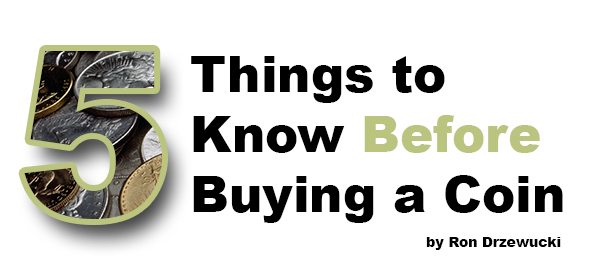
By Ron Drzewucki – Modern Coin Wholesale …..
Ideally, a collector walks into a deal knowing everything there is to know about buying a coin. This includes the typical “Red Book” kind of knowledge like dates, mintages, mint marks and value, etc., along with things like certified populations and how the market’s behaving. If we’re really talking about a collector’s utopia, then each collector possesses what economists call “perfect knowledge”. Having perfect knowledge means that you know all relevant information concerning a transaction, and no parties to a transaction can leverage that information in such a way as to generate a more favorable outcome for themselves at the expense of everyone else.
Unfortunately, reality is more complex than that. Everyday experience proves again and again that the perfect, abstract world of economics is more like a fairy tale than a biography.
But never fear. Coin collectors are fond of maxims, and the best maxims have survived repeated exposure to the real world in an almost brutally social-darwinist process that pretty much makes coin collectors some of the most pragmatic folks around–dreamers though we are. And one of the most common refrains in our pragmatic litany is “due diligence”.
An abstract name for a practical task, due diligence is simply doing your homework. Learn about that coin, find out where the market’s at. However, the idea of “due diligence” can be just as cliched as any other maxim. I’ve heard this “advice” given as though the two words are somehow exponentially profound when placed side by side, with no follow-up whatsoever.
So that’s what I’m going to do today, with a quick list of five things you should know before buying a coin. It’s not an exhaustive list, granted, and I’m sure someone else can come up with a different, equally valid or dare I say better one. But I’ve been doing this since I was 15; I’ve been on both sides of the table, and I think some of what I say may surprise you.
Are You Serious?
Let’s start with the most nebulous, touchy-feely of the bunch: buying with purpose.
As in, what’s yours? What are your goals? How is this purchase furthering those goals?
But you know what? It doesn’t always matter. It’s more than okay to splurge once in a while. Random coin catch your eye? Go ahead, buy it. As long as you’re being responsible over the long run, a frivolous purchase here and there is not only not a bad thing but it can actually do more for your coin collecting than always buying with purpose.
Confused? Don’t be. WHY did that coin catch your eye? Something about it interested you… maybe that’s an interest you’ll want to pursue further. Or maybe you’re bored with your current collection and didn’t even know it. Those “frivolous” purchases can tell you a lot about your collecting goals, and maybe help you set new ones. Or better ones, if you let them.
So make spontaneous purchases, but in moderation–you should still shop with purpose–and never bust your budget. Avoid grocery shopping when you’re hungry, you know?
Of course, there’s a difference between window shopping and whipping out the credit card. When you’re typing in those 16 digits, you should know what you’re after, what a good value looks like and where to find it.
What Are You After?
A lot of people go through collecting slumps. Some of them stop collecting while others move on to bigger and better things. If you’ve ever gotten over a slump you might know what I’m talking about here.
There’s a reason coin collecting seems to be a lifelong endeavor for so many. There’s so much to collect and there are countless ways to do it. As you gain knowledge and experience, the subtleties and possibilities reveal themselves more and more. If you’re lucky, this refinement and sophistication leads to greater enjoyment. The more you know, the more you know how much you don’t know, which feeds a sense of wonder and surprise.
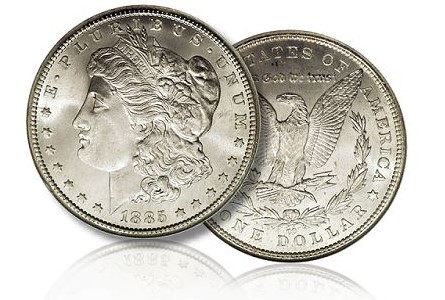 You might feel like a kid again, if you stay in the hobby long enough.
You might feel like a kid again, if you stay in the hobby long enough.
But there’s a practical word for all of this, too: specialization. It’s a rare collector that starts out looking for a 1922-26 High Relief Peace dollar short set in MS-68. More often than not a collector starts out with a cool coin pulled from change or a coin folder ready to fill (or a mint set in a Christmas stocking, etc.). In each instance it’s usually the type that matters, with dates and mint marks also being popular.
Eventually, and sometimes after an initial slump in interest, you might find that one or two coins in that mint set are “cooler” than the others, or that a certain issue appeals to you more than another version of the same type. You “buy the book before the coin” and learn about this intriguing new fork in your collecting journey. Congratulations! If you spend any amount of time seriously studying your coins of choice, you’re now an (amateur?) numismatist.
(It’s not a dirty word, trust me. It’s in the dictionary.)
So when you get online or step into that coin shop, your hunt is narrowed considerably. They might be cool, but if you’re after Barber half dollars with good eye appeal, you can and will walk right on by that case full of MS-62 Morgans.
What are you after? Specialize and find out.
What Does a Good Value Look Like?
Coin guides and websites are good at telling you certain things about coins: date, mint mark, obverse, reverse, designer, metal content, purity, finish, etc. etc. etc. If you’re buying certified (“slabbed”) coins, you’ll probably hear about grade, condition, pedigree and population reports. Useful information, undoubtedly; all things being equal, most collectors would take pride in owning a conditionally-rare, top pop key date coin made of 99.9% pure precious metal.
Obviously, however, this kind of information helps a dealer sell coins, so why wouldn’t they want you to be informed? It’s what they don’t say that should make you curious.
You might think how much a coin is really worth would be at the top of the list, but no, not really.
Because a coin’s “value” is just a mirror, a cipher. A mirror on the market, perhaps, but if you’re not careful, it’s a magic mirror, showing you what you want to see and not what’s actually there.
Now, a dealer may know more than you about a coin, or the market, but that knowledge is always shifting and incomplete. No one, and I mean no-one–not the Red Book, not Q. David Bowers (sorry, Dave), not myself–can possibly accumulate and analyze the obscene volumes of data that would be required to pinpoint the “true” value of a coin. And even if we had the time and energy to do it, that value would change with every new bit of information that came in, unpredictably, every second of the day.
Ironically, this inability to know the “true” value of a coin is why an experienced coin dealer is so valuable to a collector. Such a dealer has seen more coins and learned more about those coins out of necessity, whereas a collector can learn or do whatever he or she wants to, when they want to, and as much or as little as they want to. Plus, the human brain is a wonder of creation, capable of filling in the gaps and finding patterns. Seasoned or especially-gifted coin dealers have a well-developed intuition when it comes to coins.
Put it to work for you.
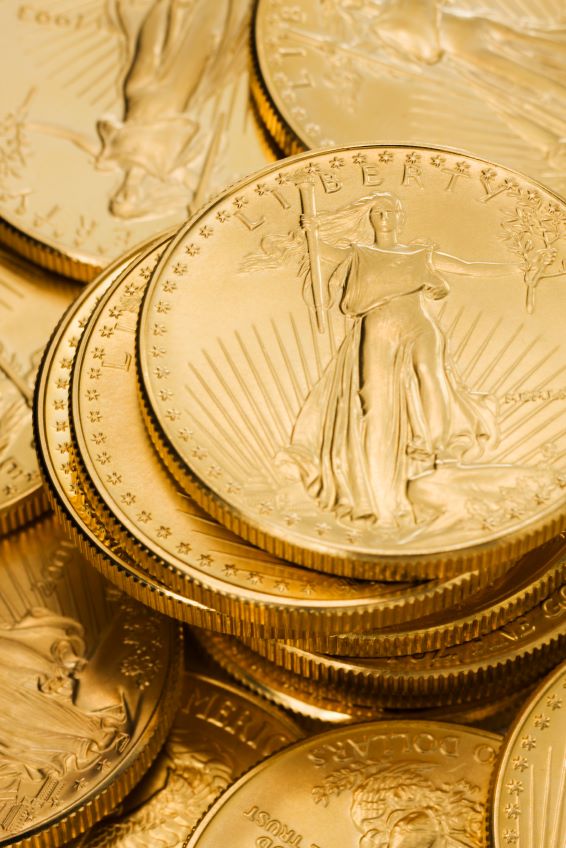 But that assumes some kind of dealer/client relationship already exists. What if you’ve never stepped foot in a shop? What if the internet is where you do all your shopping? You don’t necessarily know who to trust out there.
But that assumes some kind of dealer/client relationship already exists. What if you’ve never stepped foot in a shop? What if the internet is where you do all your shopping? You don’t necessarily know who to trust out there.
Well, as corny as it sounds–and despite what I just said about coin values–the Red Book is as good a place to start as any. No, as you specialize, it may not serve you as well as a single-subject volume will, but guess what? EVERYBODY looks at the Red Book. The numbers in the Red Book are what everyone starts with.
If you’re trying to make small talk, the weather’s safe, right?
Some people may know certain sectors of the market better than the Red Book and can leverage that to their advantage, it’s true. So I recommend keeping an eye on eBay. Do an eBay search for your prospective purchase. Click on the “advanced search” tab and play around with the options. And before you start to think that I’m undercutting my own business, keep this in mind: as many times as someone wins a coin wildly under value, someone wins a coin wildly over value. You can’t control which side you’re going to land on.
You can notice patterns, however. In my experience, most coin series give up a rough average price on eBay with some brief but consistent observation.
And the main reason I mention eBay is the same reason I mentioned the Red Book – “everybody” uses it. It’s a live auction site, updated very frequently, and is leaps and bounds ahead of the competition in regards to how much information it churns out.
Another thing to keep in mind is demand. Did the mint just release the Coin of the Year at midnight and is sold out by lunch time? I’ll have that coin in my shop… and so will a hundred other dealers. Demand is intense and supply is almost non-existent, so prices are going to be higher than they might otherwise be.
Again, may I not-so-humbly suggest that I’ll have the better price?
The other thing I’ll say (for now) about finding a good value is that it’s all in your head. The more you know, the longer you collect, the more of an instinct you’ll have for it.
Where Do I Find It?
Okay, so I’ve talked about specialization and being a conscientious collector. I’ve talked about the mirage of coin values and “perfect knowledge”. Due diligence. Demand. The market. I should also mention skills like patience and using a budget. These things are your responsibility to either nurture, act upon or be aware of.
The fourth item on my list falls on others, namely anyone who has ever sold or wants to sell a coin.
You’ve read some of why I’m such an advocate for the cultivation of a collector/dealer relationship. Assuming that you found great wisdom in my words, this is precisely what you’re looking to do (I’m also assuming that you’re going to be in the collecting game for at least a little while).
Therefore, the answer to the question “where do I find good value?” is wherever you can cultivate that collector/dealer relationship.
Another name for this relationship is “customer service”. So if you buy from me online, expect great customer service above and beyond what the competition offers. Maybe you’ve heard alleged horror stories about Comcast’s customer service? Never accept that when you’re buying coins, online or otherwise. Spend your money somewhere else.
Ever ask for help in a coin shop and been made to feel like you’re two feet small? They are obviously independently wealthy and don’t need your business. There’s someone friendlier who does just a town or a block away. Go there.
Have Fun!
And for my final entry, I suggest that you always remember you’re having fun. You’re buying this coin or that coin because it’s fun. Because you can and because you want to.
If a coin isn’t fun, don’t buy it.
If collecting coins isn’t fun, don’t do it.
Sure, there’ll be times when you’re all “funned out”. When your emotions ebb and flow like they do when your favorite team wins the world series or chokes on a fourth down. But like everything else, moderation and dedication will see you through.
Know this, and you’ll build the collection of a lifetime.
-Ron


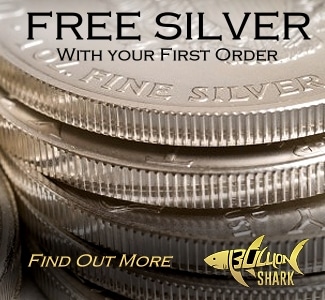
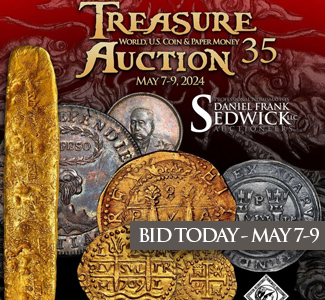
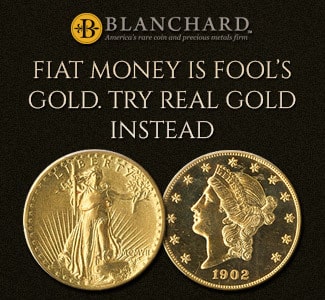
Thanks. I like how your advice is not just geared towards more wealthy collectors. I find your advice useful and relevant to just about any collector.
That is a good thing to know before you start buying gold coins. You want to know why you are buying gold coins in the first place. Once you know why you are buying gold coins you can get the amount you need for your purpose. Thanks for the great gold coin buying advice.
Thanks for posting this! Cultivating a collector/dealer relationship is valuable when you’re looking to collect rare coins and other items. Dealers know exactly where to look for things like rare coins and how to get them for a good price. They’re usually good sources of information when it comes to these things, as long as they feel like they have a good relationship with you. Sometimes finding the things you want is all about connections, so that’s where your coin dealer will come in handy.
I like the idea that coin collecting can be a life-long endeavor. I know that may turn people away but for me it makes me want to do it even more. I have been looking at some coin dealers online and it all really just fascinates me. I like that I can do it my whole life. I don’t really have a time limit to get it done. I definitely agree that there is a sophistication to it. Thanks for your great article on coin collecting. I’m excited to get more into it.
Thanks for this. I’ve always been an obsessive, collecting type. I have other collections, but have never tried collecting coins. If I ever step into the fray, knowing how to specialize will help.
These are some great tips, and I appreciate your reminder that collecting coins is about having fun. I started this hobby a few years back, and sometimes I stress about purchases and lose sight of the fact that I’m doing this for enjoyment. I’ll definitely try and keep that in mind in the future and remind myself that this is an entertaining hobby. Thanks for the great post!
I really like these tips. My Grandfather was a coin collector and when he passed I inherited his coin collection. I will have to use your tips as I try and build upon what he left me. Thank you for sharing.
This is some great information, and I appreciate your reminder that collecting coins is a fun thing. I’ve been interested in gold coins for a while now, and I’ve decided that I want to begin a collection, but I’ve been kind of stressing about the whole thing. While it’s good to be cautious, I’ll definitely make sure to remember that this is something I’m doing for fun, so it should be just that. Thanks for the great post!